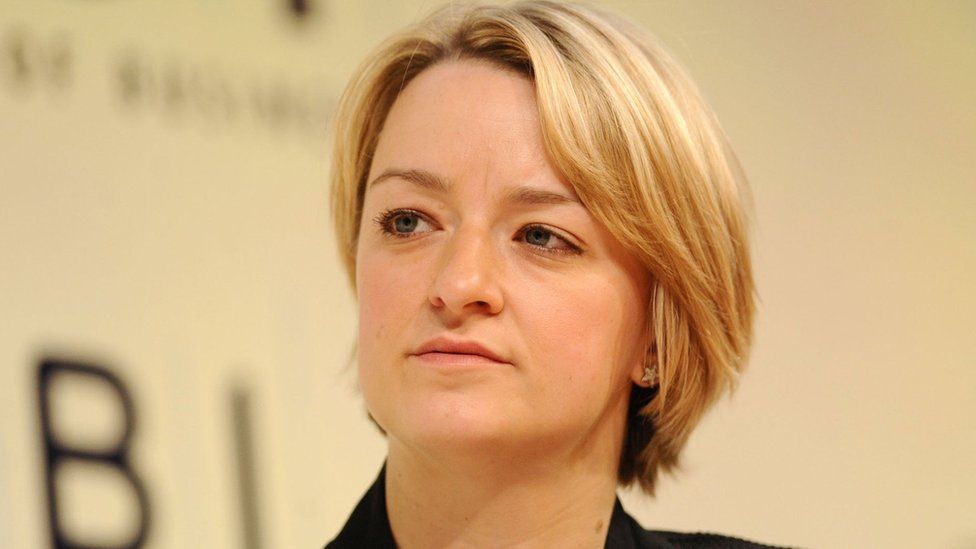Laura Kuenssberg report on Jeremy Corbyn inaccurate, says BBC Trust
- Published

The BBC broke accuracy and impartiality rules in a News at Six report about Jeremy Corbyn's view on shoot-to-kill, the BBC's governing body has said.
The item, by BBC political editor Laura Kuenssberg, was shown three days after the Paris attacks in November 2015.
A viewer complained that the report misrepresented the Labour leader's position on the use of lethal force in the event of such an attack in the UK.
BBC News director James Harding said he disagreed with the BBC Trust's ruling.
In the News at Six report, Kuenssberg said she had asked Mr Corbyn "if he were the resident here at Number 10 whether or not he would be happy for British officers to pull the trigger in the event of a Paris-style attack".
He was seen to reply: "I am not happy with a shoot to kill policy in general. I think that is quite dangerous and I think can often be counter-productive."
The actual question Kuenssberg had asked during the interview was: "If you were prime minister, would you be happy to order people - police or military - to shoot to kill on Britain's streets?"
The previous question in the interview, in a section that was not used on the News At Six, he had been asked specifically about his response to a Paris-style attack if he was prime minister and whether he would "order security services onto the street to stop people being killed".
In answer to that question, Mr Corbyn had replied: "Of course you'd bring people onto the streets to prevent and ensure there is safety within our society."
The BBC Trust said the BBC "was wrong in this case to present an answer Mr Corbyn had given to a question about 'shoot to kill' as though it were his answer to a question he had not in fact been asked".
The Trust said the Paris attacks, and how Britain might respond in a similar situation, were "major matters of considerable importance".
It also said: "The breach of due accuracy on such a highly contentious political issue meant that the output had not achieved due impartiality."
But the Trust found no evidence that there was a deliberate attempt to mislead audiences and noted that the full interview had been published on the BBC website.
The complaint did not come from Mr Corbyn or anyone acting on his behalf.
'Outstanding journalist'
James Harding, director of BBC News said: "While we respect the Trust and the people who work there, we disagree with this finding.
"Laura is an outstanding journalist and political editor with the utmost integrity and professionalism. BBC News reported on the leader of the opposition in the same way it would any other politician.
"It is striking that the Trust itself said there was 'no evidence of bias'. Indeed, it also said the news report was 'compiled in good faith'.
"The process is now concluded and BBC News formally notes the Trust's finding."
The BBC said the complaint had been looked at on four other occasions and each time had been rejected.
Follow us on Facebook, on Twitter @BBCNewsEnts, or on Instagram at bbcnewsents. If you have a story suggestion email entertainment.news@bbc.co.uk.